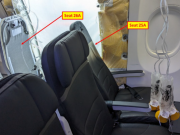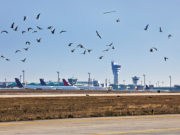
The threats to flight operations of bird and other wildlife strikes have existed since the inception of powered flight. The first bird strike ever recorded was noted by Orville Wright in his diary in 1905.1 As a result, the aviation industry over the years has implemented a variety of mitigation efforts and programs, and developed numerous resources by and for aircraft operators, airframe manufacturers, airports, wildlife experts and government agencies.



